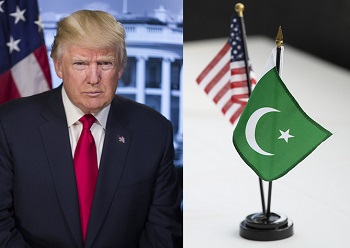Kabul Terror Attack Likely Designed to Force Trump’s Hand
Michael Hughes
June 2, 2017
There is little mystery over who is responsible for this week’s terrorist attack in Kabul, which Afghan intelligence officials have blamed on their Pakistani counterparts. The true dilemma lies in figuring out what is driving Pakistan’s calculus this time. The strategic depth doctrine is always at play which calls for “keeping the pot boiling” – as General Zia used to say – to prevent a stable, united, and independent Afghanistan from making decisions inimical to Pakistani interests, such as daring to align with India. But the timing, location, and profile of the attack suggest that it also might have been intended to send a message to the White House in a risky bid to test President Trump.
On June 1, a source from the Afghan Ministry of Public Health (MoPH) told Tolo News the death toll from the previous day’s truck bombing in Kabul had risen to 100 with more than 600 wounded. Afghanistan’s National Directorate of Security (NDS) said the attack appears to be the handiwork of the Haqqani Network with the aid of Pakistan’s Inter-Services Intelligence (ISI).
The Haqqani Network, of course, has been a proxy for Pakistan’s security forces for decades. In 2011, after an attack on the US Embassy in Kabul, Admiral Mike Mullen, the chairman of the U.S. Joint Chiefs of Staff, said the Haqqani Network acted as a “veritable arm” of Pakistan’s spy agency. However, if ISIS is to blame that does not rule out Pakistani complicity either – but more on that later.
The timing is significant given that Trump is mulling the possibility of sending some 5,000 troops to Afghanistan amid an intensification of U.S. air and drone strikes in the region. Moreover, the attack struck at the heart of the diplomatic district, obviously targeting Westerners. Although 11 American contractors were injured, one wonders if the plotters had higher aspirations, including killing U.S. officials. If so, to what end?
Pakistan has been pulling the wool over the eyes of every U.S. administration since the country was founded, initially because of Cold War geopolitics. The Pakistanis played a double game in the post-9/11 era by claiming to be an indispensable ally in the war on terror while they continued to support assets like the Haqqanis.
Obama, for his part, did practically nothing despite clear evidence Pakistan helped support high-profile attacks inside Afghanistan. Trump, however, is likely still an enigma to decision-makers in Islamabad, Rawalpindi, and within the ISI. They are probably wondering if Trump will turn a blind eye and willfully ignore Pakistan’s transgressions just like his predecessor did.
There are certainly grave risks for Pakistan in testing the unpredictable New York billionaire and his family. For starters, there is the risk of the “Ivanka Syndrome.” Ivanka ordered a missile assault on Syria that her father dutifully carried out after seeing pictures of babies killed in a gas attack. If American civilians, troops, or diplomats were killed in Kabul and photos circulated that pulled at the heartstrings of Trump’s daughter, the consequences could be devastating. There is Trump’s ego itself to consider as well. The mercurial President is entirely capable of launching a full-bore invasion of Afghanistan at a moment’s notice if Pakistan goes too far.
Then again, the U.S. post-911 military occupation in tandem with a runaway aid program destabilized Afghanistan to depths that made Taliban rule seem appealing. The instability almost played into the hands of Pakistan, which tried to broker a power-sharing arrangement between the Afghan government and members of the Haqqani clan in an attempt to implement their idea of a political solution. Not to mention the twisted side-benefit of Pakistan securing more military were the United States to re-occupy.
A potential secret weapon Pakistan might be devising is even more alarming. If the Haqqanis cannot draw the United States in perhaps Islamabad could rely on ISIS, the elimination of which is the Trump administration’s number one goal. Or something even more sinister, like a double-headed jihadist creature.
Fox News reporter Hollie McKay reported on May 31 that there was apprehension in Afghanistan that “the Taliban and ISIS could at some point merge or at least cooperate with each other.” Sayed Ishaq Gailani told McKay that because of the Taliban’s poor financial situation, they might be willing to partner with ISIS, which has access to a significant amount of foreign funding and a greater weapons arsenal. And, according to McKay, the Taliban and ISIS have collaborated against government forces in the north.
In addition, last year Pakistan’s military was caught red-handed financing, equipping, and training ISIS fighters. Point being, it is not inconceivable that both groups could thrive under Pakistan’s tutelage. Pakistan’s spy agency would then be able to create its biggest Frankenstein monster yet – and one Trump probably could not willfully ignore.

